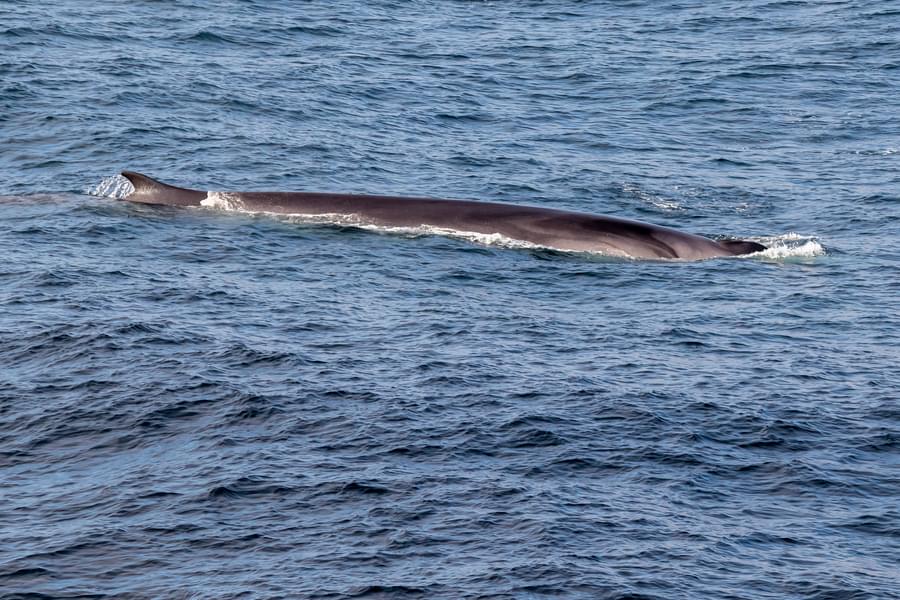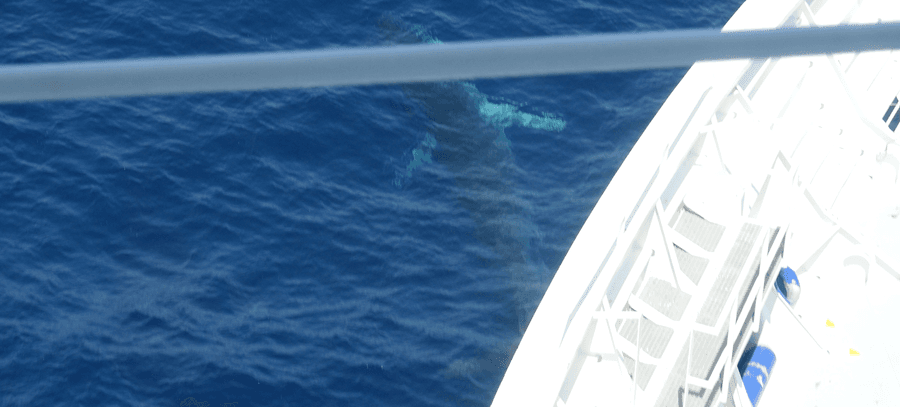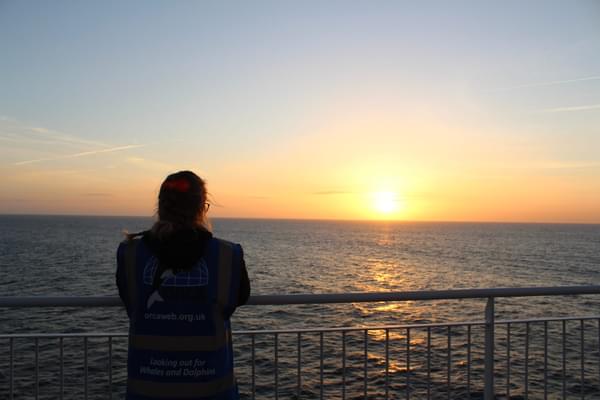ORCA's Research Scientist, Sasha, gives us an update on this year's whale behaviour project in the Bay of Biscay
In 2023, ORCA dove head first into researching more about vessel strikes through a project in the Bay of Biscay, with the first field season taking place on the Brittany Ferries ship: Galicia. Cruising from Portsmouth to Bilbao, crucially transiting across a hotspot for fin whale activity, the Galicia was a great platform on which to observe close encounters between large vessels and marine megafauna. If not already evident, this year has once again been greenlit for a season full of observations and opportunities that will allow for new steps to be taken in our understanding of the animals and how best to observe and protect them.
Understanding how large whales respond in close proximity to large vessels could give us important new insights into the way that these animals perceive shipping traffic. This understanding is crucial to reduce vessel strike risk, as it can impact the advice given by conservation bodies to seafarers.
This season we are back on board the Galicia, though with a few minor changes and updates. Firstly, is that the ship has a new route and with it a whole new area to explore.
Coming to Portsmouth only once a week, the Galicia is now going between Bilbao and Rosslare. The English Channel is not known to be prime feeding or breeding grounds for many large whales, so this area is not of too much interest for this particular project. However, further north, past Cornwall, we can start to run into a plethora of interesting marine life. From the smaller minke whales to massive ocean sunfish to the focal animal of this project: the fin whale. This new area increases our chances of collecting close encounter data on these fascinating animals.

The route is not the only thing that changed, seeing many familiar faces on the ship made it very pleasant to be back on board, but new encounters added a breath of fresh air and new ideas to add to or improve the current system. On the equipment side of this project, we are also hoping to make some much needed improvements. The current camera system which is comprised of one mobile and two fixed cameras (capturing footage straight ahead) has allowed us to capture the behaviour of the whales from the horizon all the way to really up-close footage but also highlighted the limited view we have of what happens directly in front of the boat, as this is the crucial point where, due to the ship, we cannot see the whale if it comes closer than 50m to the bow. Essentially, there is a crucial missing blind spot! The next evolution of the setup will attempt to add more cameras, and reposition them, which will give a much better angle of the up-close behaviour which we are so keen to understand.
Finally, the animals themselves. Last year we noticed a marked lack of response or reaction to the presence of the ship. Even at very close distance the animals did not seem to make much of an effort to avoid or move away. This year, from the first couple of fin whale sightings it became clear that things would not go the same. Even at longer ranges the animals clearly change directions though some in more erratic and unpredictable ways than others. Other sightings had the fin whales appear seemingly out of nowhere right in front of the bow leading to displays equally beautiful and worrying. Luckily the crew on the bridge are extremely quick to react to whale sightings, and are able to very quickly assess whether an evasive manoeuvre needs to be made. The understanding we gain from such close encounters is what will in the future allow us to better advise on these evasive manoeuvres and thus make the life for both the animals and the crew a little less stressful. We are excited to once again take you along on this project and will share more soon!
You can read more about our whale behaviour projects in our recent 2024 State of Cetaceans report.


Vessel strikes are one of the biggest threats to large whales globally and needs urgent action before vulnerable populations are wiped out. Donate today at www.orca.org.uk/donate to support our cutting-edge vessel strike research and help find a solution to mitigate this threat

.jpg?w=900&h=600&q=85&auto=format&fit=crop&dm=1685951507&s=0267375b247640e018131d45f2d395de)